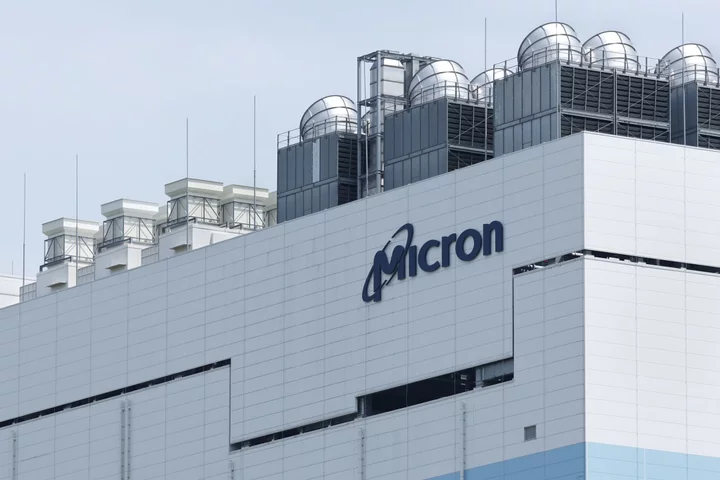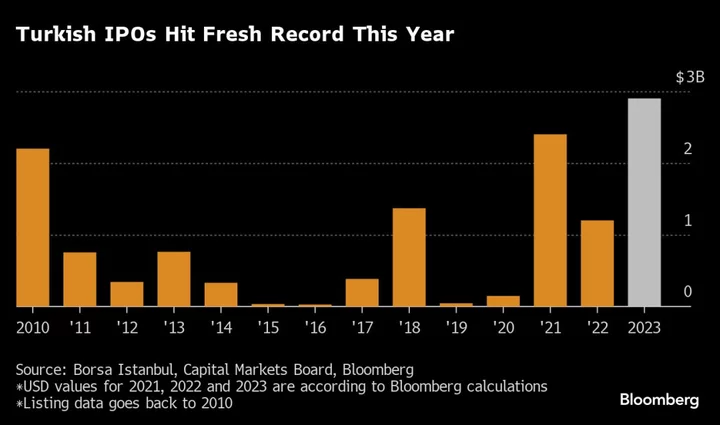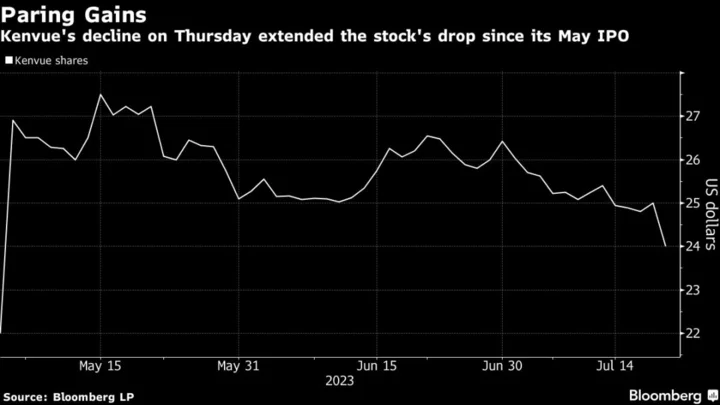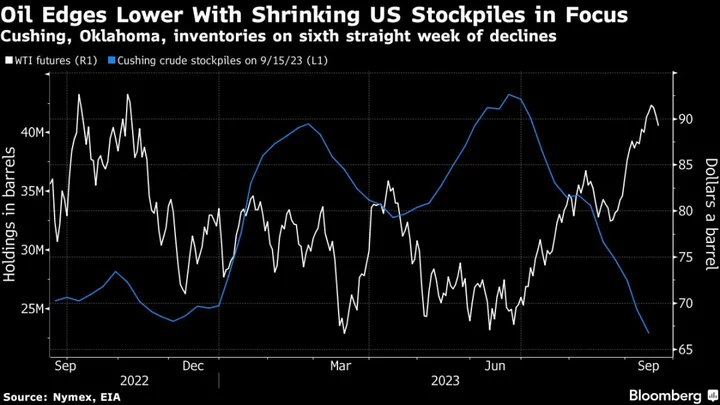Micron Technology Inc. fell in late trading after predicting a steeper loss than anticipated in the current quarter, indicating that an industry slump is still weighing on the largest US maker of memory chips.
The company projected a fiscal first-quarter loss of as much as $1.14 a share, excluding some items. Analysts had estimated a 96-cent loss. On the bright side, revenue is expected to start recovering in the period. Micron predicted sales of $4.2 billion to $4.6 billion, compared with an estimate of $4.21 billion.
For Micron and its competitors, Samsung Electronics Co. and SK Hynix Inc., 2023 has been a brutal year. Customers in their main markets — personal computers and smartphones — have slashed orders as they cope with lackluster demand and stockpiles of excess parts. Wednesday’s report suggests that investor optimism about a rebound in profitability may be premature.
The shares dropped about 4% in extended trading. They had closed at $68.21 in New York, leaving them up 36% this year.
Chief Executive Officer Sanjay Mehrotra said his company has taken “decisive actions on supply and cost,” which will help Micron as the market for memory chips recovers in 2024 and then reaches record levels again in 2025.
The burden of excess inventory has now lifted and Micron’s customers, apart from those who make data center servers, are now ordering at levels that reflect demand for their products, Mehrotra said in an interview. In some areas, devices makers are now increasing the amount of memory and storage put into each product.
Prices for Micron’s products are going up, and the rate of the price jump is increasing, he said in an interview. “This is how we’ll enter 2024,” Mehrotra added.
Sales have fallen for five straight quarters. In the three months ended in August, Micron’s revenue declined 40% to $4.01 billion. The company had a loss of $1.07 a share, excluding certain items. That compares with an estimated loss of $1.18 a share and sales of $3.93 billion.
The forecast suggests sales will begin to grow again in the fiscal first quarter, which runs through November.
But one additional obstacle that Micron faces is Beijing’s designation of its products as a security risk. That’s already cut into the US company’s revenue in China — the largest market for semiconductors — in what management has previously called a “significant headwind.”
Read More: Micron Vows $600 Million China Investment Weeks After Chip Ban
Micron expects the industry outlook to brighten considerably by 2025 — especially as artificial intelligence systems demand new types of more expensive memory chips.
In the interim, the outlook remains mixed. In traditional servers — the computers that are still the mainstay of most data centers — demand remains “lackluster,” Mehrotra said. Both personal computers and smartphones will return to growth next year, with units increasing by a percentage in the low- to mid-single digits, Micron said.
To cope with the slowdown, Micron and its peers reined in production, severely reducing supply and helping prices bottom out. It expects to be “significantly” below peak 2022 output for the foreseeable future. The company plans to continue to run factories at less than full capacity well into calendar 2024. Micron also will further reduce spending on new equipment next year.
Micron’s chips, which help store information in computing devices, are particularly vulnerable to swings in demand because memory products are directly interchangeable and traded like commodities. Rapid fluctuations in the balance between supply and demand can leave producers selling the components for less than they cost to make.
(Updates with comments from CEO beginning in the fifth paragraph.)









